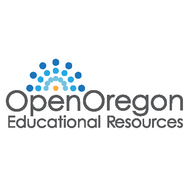
(View Complete Item Description)
Canvas Commons course shells for A&P sequence.
BI 231: One of three courses within the human anatomy and physiology sequence that need not be taken in order. This course provides students with the opportunity to study the structure and function of the human body from a systematic perspective, while emphasizing homeostasis, organ system interaction, and complementarity of structure and function. Specific topics include: the integumentary, skeletal, cardiovascular and lymphatic systems. Laboratory sessions include dissecting animal specimens, conducting physiological experiments, examining case studies, using the compound microscope, and studying anatomical models.
BI 232: One of three courses within the human anatomy and physiology sequence that need not be taken in order. This course provides students with the opportunity to study the structure and function of the human body from a systematic perspective, while emphasizing homeostasis, organ system interaction, and complementarity of structure and function. Specific topics include: the muscular and nervous systems, special senses, and the endocrine system. Laboratory sessions include dissecting animal specimens, conducting physiological experiments, examining case studies,using the compound microscope, and studying anatomical models.
BI 233: One of three courses within the human anatomy and physiology sequence that need not be taken in order. This course provides students with the opportunity to study the structure and function of the human body from a systematic perspective, while emphasizing homeostasis, organ system interaction, and complementarity of structure and function. Specific topics include: the respiratory, digestive, urinary, and reproductive systems. Laboratory sessions include dissecting animal specimens, conducting physiological experiments, examining case studies, using the compound microscope, and studying anatomical models.
Material Type:
Full Course
Authors:
Kristen Oja,
Michelle Miller




















